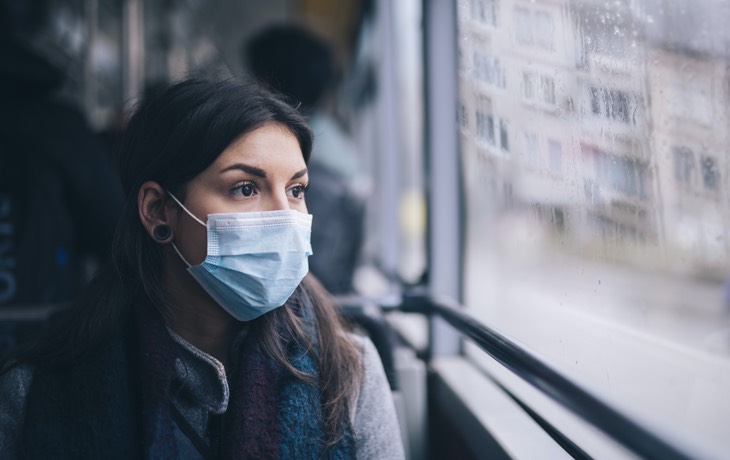There’s a lot of optimism in the air right now, as a mix of summer sunshine and state-by-state reopenings have substantially lifted the country’s mood. But many epidemiologists and public health experts believe we’re only in the second inning of a nine-inning game. It’s way too early to declare victory.
I personally am hoping for the best, but I’m not counting on things getting better. In fact, whenever I’m asked how to prepare for what’s next, I always give the following advice: Whatever challenges you’ve faced from the pandemic — the psychological stress of distancing and of not knowing what will happen next, meat shortages, boil water notices, hostility from strangers over your decision to mask up or not mask up in public, political divisions deepening, personal relationships strained, etc. — plan for those to get a lot worse.
Hope for things to get better, but prepare for them to get a lot worse
First of all, I advise against getting in a big hurry to make changes. It’s likely that we’ll have most of the summer and possibly some of the fall before the next shoe drops (if there is indeed a next shoe). But it is smart to assess where you’re at right now and what you’d need if things go worse. Then, make a plan for how to address those needs.
In terms of my own preps, here’s what this looks like and how I’m thinking about the future:
- Food: Not only am I keeping my food stores constantly topped up, but I’m working on adding some small livestock to my property. We’re in a breeder’s queue for some pigs that won’t be ready until December. But that’s fine because we’re not in a hurry. My kids are getting into rabbits, and at some point, we may add meat rabbits. We’re also doing more gardening, and learning about that.
- Water: We’re on well water, and I’m looking to add a large storage tank beside the well house. This will give us a backup source of tap water in the event we lose power for a bit. Eventually that will be far easier to work with than our current backup water source (i.e. a pond and a creek).
- Power: We never really invested in solar, but toward the end of the summer I’ll begin actively looking into it. Luckily, we have enough land that we don’t need to put it on our roof, so an install will be cheaper and easier to service.
- Education: We’ve been in emergency mode with our kids’ education since the school closed after their spring break. But before the school year starts up again, I’ll be taking time off to develop some sort of real homeschool curriculum for them, in case they either don’t go back or get pulled out again.
Yes, the list above has us going a lot more in the direction of the full “doomer” homestead, but we’re okay with that.
Do I expect to need all this stuff? I certainly hope not!
But I keep thinking back to that week in November when I pulled the trigger on some boxes of N95 masks for the sole reason that they were on our preps list and I didn’t yet have any… and how a few days later I felt like a nutter unboxing them and sneaking them into my office so my wife wouldn’t see them and think I had lost my mind.
That’s the story of this pandemic for me and many other preppers, so far: a whole bunch of things we did that were nutty when we did them turned out to be prudent.
My fervent hope is that my kids will go to college and have fun stories to tell their friends about how their dad went full doomer during the coronavirus and they ended up with pet pigs and a giant water tank. But hope is not a plan, and I’d rather have this stuff and not need it than need it and not have it.
Use the reopening as a chance to get your supplies in order
Most of the plans above require open stores and a functioning economy to implement. While both of those things are available to me, I’m going to take advantage.
In general, if there are critical preps I don’t have, I’m looking to source those right now. If I’ve used up anything in the past three months, I’m trying to replace it.
There are other things I can do, too, while optimism is surging. For instance, if I have an asset or a liability (e.g. a lease or other commitment) I’d like to part with before things get bad, now’s the time to hand that off to someone who’s more optimistic than I am.
Don’t expect your government’s response to improve
I’m not interested in using this post (or the comments below) as a venue for talking about how this or that party or politician is to blame for this or that aspect of the response. Obviously, I have my own opinions there, but this isn’t the place for them.
Instead, it’s important to acknowledge that every single government, from China to the United States, has made its own mistakes in its response to the coronavirus. Furthermore, not only do those mistakes reveal the peculiar weaknesses of those governments, but those weaknesses will not be fixed on a time scale that matters for this pandemic.
Whatever the fundamental frailties or gaps in your own government’s system, you’re stuck with them for the duration of this thing. Don’t expect any fundamental, big-picture improvements to come about before this is largely over.
Find the functional aspects of COVID-19 life and double down
There are some things about the current troubles that are actually working a little better for my family than our previous life. Before, we were constantly running around in the car and shopping for junk we didn’t need. That’s not happening anymore.
My wife and I have spent some time thinking about what’s working a little better for us so that we can lean into them. We want to look back on this period and be able to say we were intentional about making the best of it.
Here are some examples:
- We’ve reconnected with people on Zoom, and that has been great. We want to be more deliberate about keeping those connections.
- We’re making plans to socialize a bit more face-to-face, being careful and selective about it (taking into account distancing, both ours and our friends’). Because we’re being so intentional, we’ll likely end up seeing more people more regularly than we did when all this started.
- We’ve gone through some phases where we were curious about homeschooling, but we would never have voluntarily tried it. And in fact, we like the school our kids go to and would love for them to be able to go back. But since homeschooling has been forced on us, we’re going to really try to make a go of it.
- We’re not driving at all now, and we love it. We didn’t realize how much we hated being in the car, and hustling kids in and out of the car, until we stopped doing it. So we’re actively looking to re-plan our lives around minimizing driving.
- We cook more from scratch. This has been great, and we want to keep doing it and getting better at it.
- We wanted to try raising some livestock on the property, but were always put off by the prospect of being inconvenienced. But hey, we’re already inconvenienced by this pandemic and stuck on our property, so let’s try some livestock!
I could go on, but my ultimate point is that we’re actively looking for ways to turn the novel, really weird situation into a net advantage — to try things we wouldn’t have tried otherwise.
Conclusion: model and plan, but don’t predict
I don’t have a crystal ball, or even a good set of predictions for what’s next. But I don’t have to know what’s next to start preparing.
More: The Sane Prepper Mantra: Common sense rules for prepping
The increased level of uncertainty in every area of life is exactly why I’m steadily, deliberately pushing my own prepping in a more “extreme” direction than I would have in the past. Look around — reality has gotten more “extreme”, and things we all thought weren’t likely to happen, have in fact happened.
Here’s another way I can put it: this pandemic is going to take either a turn for the better or a turn for the worse. I can’t control which of those two turns it takes, but I can control which of them is going to surprise me. So, right now, I’m setting myself up to be surprised if it turns for the better. That feels like a safer, smarter play than being surprised if it takes a turn for the worse.
Last week in an interview for PBS’s “The Open Mind” podcast with Alexander Heffner, I gave some advice that I’ve been repeating a lot to friends, family, and media types who ask me how to prepare for what’s next with COVID-19. This is an expanded version of my personal perspective on how to get ready for the next few months.


You are reporting the comment """ by on